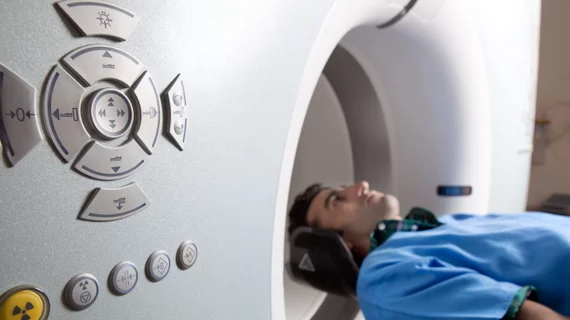Safety of CT contrast agents called into question
Using contrast agents to enhance CT scans is an established risk factor for kidney injury in those at risk for renal complications, according to a March 23 NPR report, but the research that drove that conclusion years ago might be unbalanced.
The safety of contrast agents has been in question since the first report of contrast-induced nephropathy (CIN) surfaced in a Scandinavian medical journal in 1954, NPR reported. That patient developed renal failure and died, prompting extensive research that eventually established renal injury as a “well-known complication” of using contrast agents in imaging tests.
As the research piled up, radiology professor Jeffrey Newhouse noticed something was off—in the more than 3,000 studies about CIN he and a colleague at Columbia University reviewed, just two had established a control group.
“Everyone assumed that any kidney injury after contrast was a result of the contrast, but these studies had no control groups,” he told NPR, noting neither of the studies that used control groups found the contrast to be dangerous. “Having criticized those that did the experiment without the control, we decided to do the control without the experiment.”
Newhouse studied 10 years’ worth of data from 32,000 patients who’d been hospitalized but not received any contrast agent. Around half of those patients would have met the criteria for CIN had they received contrast, suggesting renal injury in these cases might not stem solely from the agent itself.
Today, after another decade of research, the medical community is still unsure of the risks contrast agents carry. Michael Rudnick, a kidney specialist at the University of Pennsylvania, said we can’t really know until we launch a randomized controlled trial—something that’s unlikely to be approved by an ethics committee since there’s still so much uncertainty on the subject.
“Nearly harmless and totally harmless—we’re somewhere between those two,” Newhouse said. “But how much harm is done in withholding this stuff? We just don’t know.”
Read the full story below:

